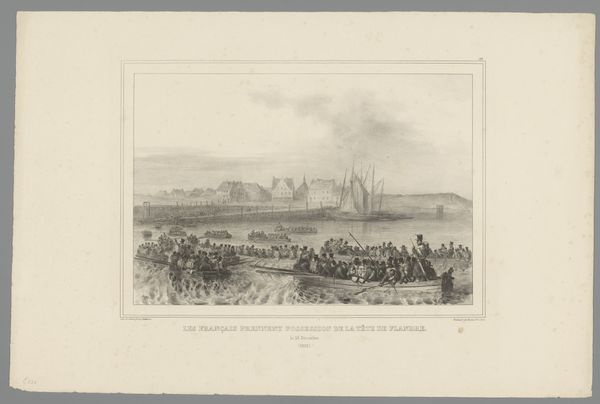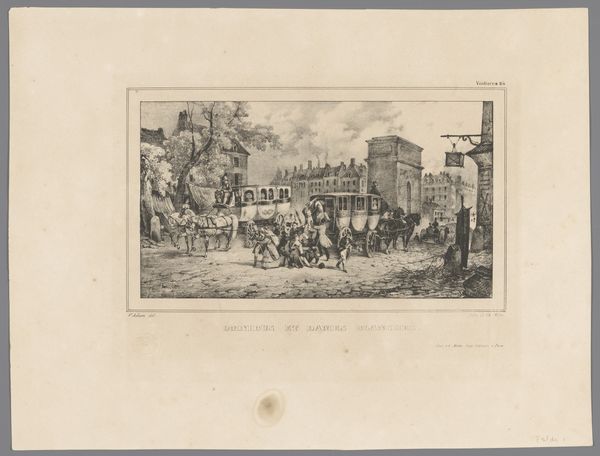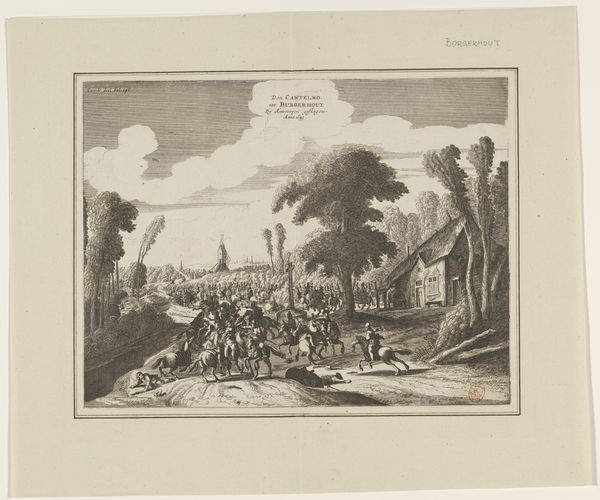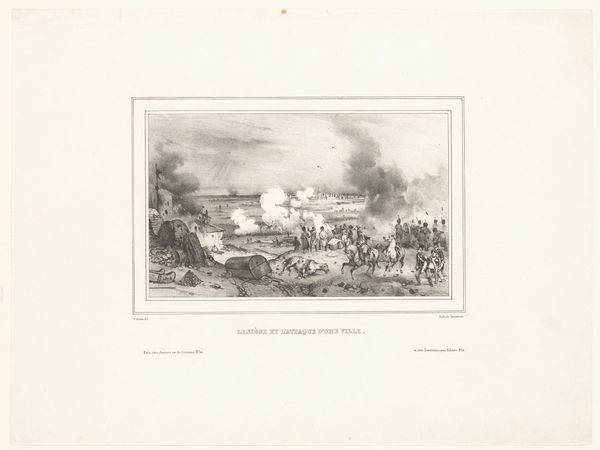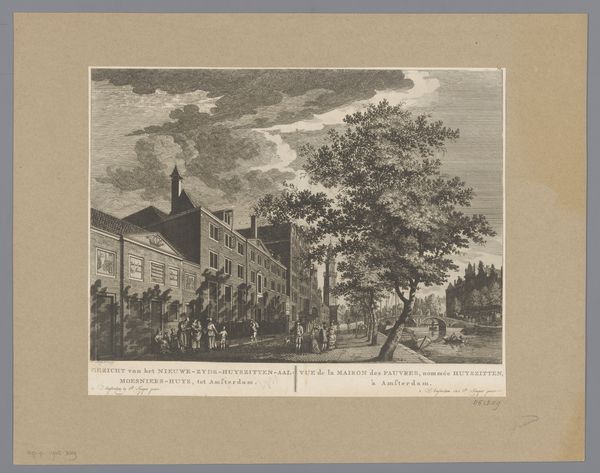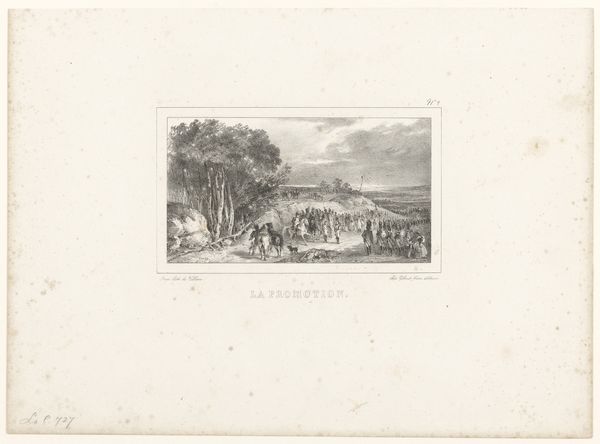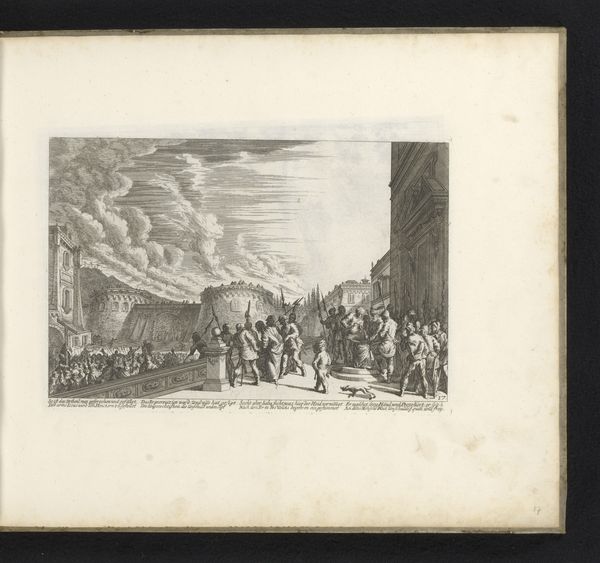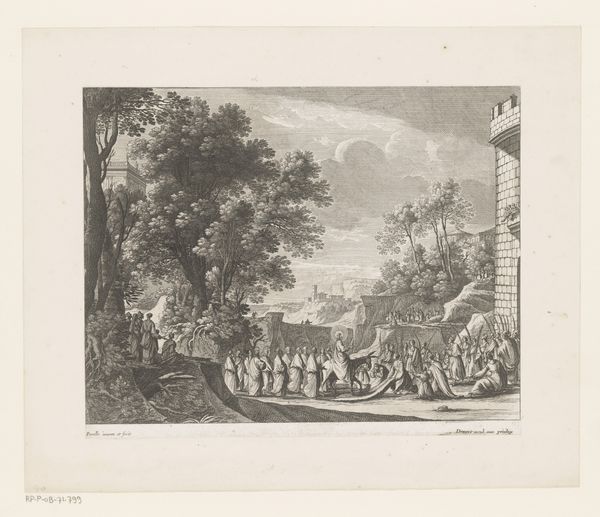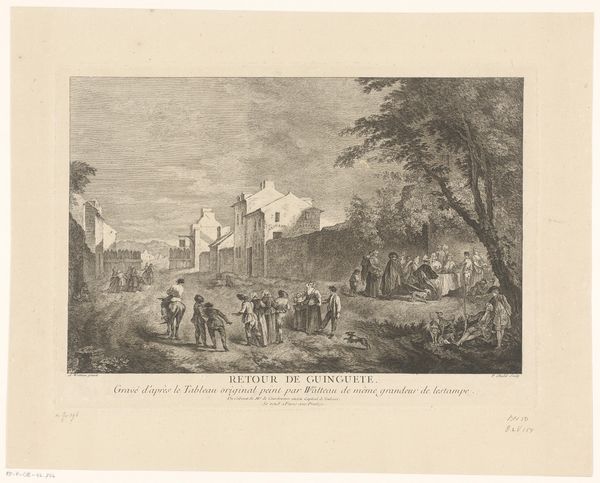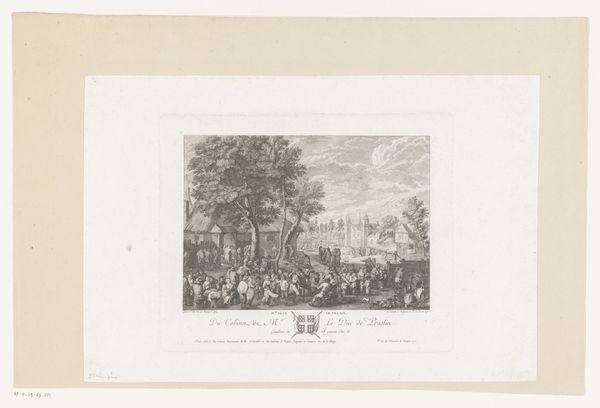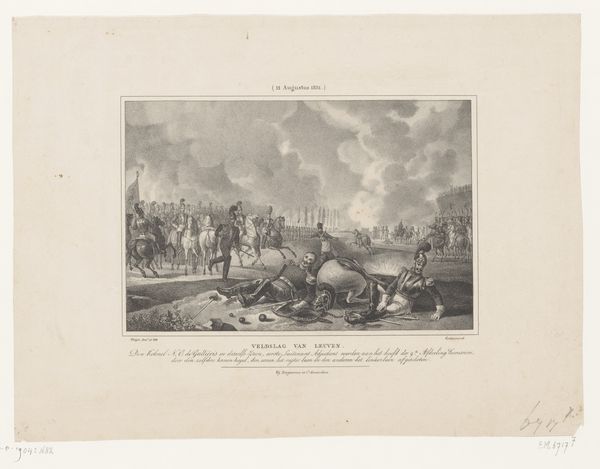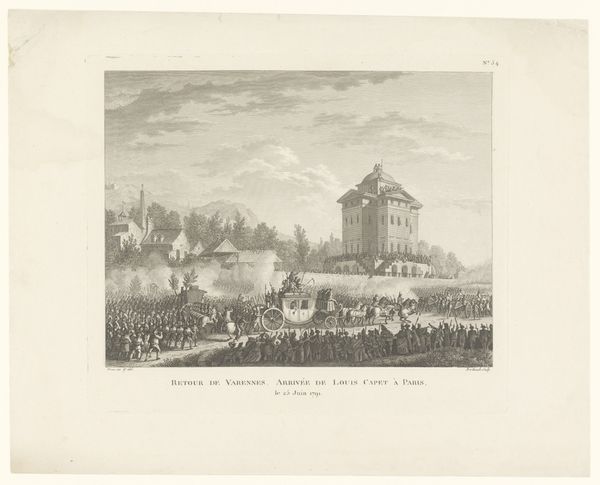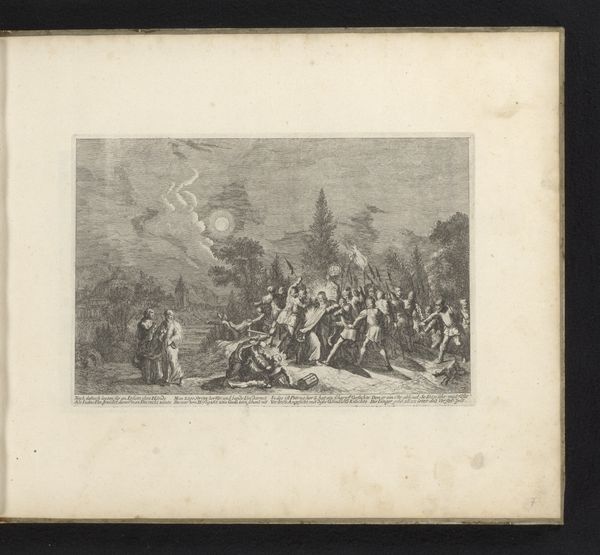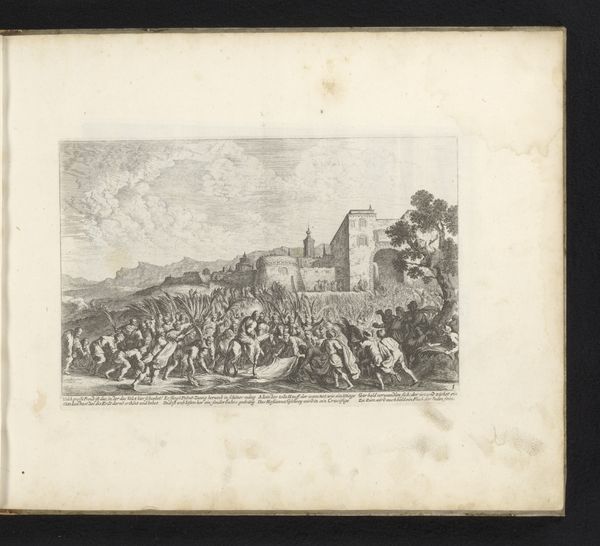
Den Haag geplunderd onder leiding van Maarten van Rossum, 1528 1722 - 1784
0:00
0:00
simonfokke
Rijksmuseum
print, engraving
#
baroque
# print
#
genre-painting
#
history-painting
#
engraving
Dimensions: height 163 mm, width 194 mm
Copyright: Rijks Museum: Open Domain
This print, depicting the looting of The Hague in 1528, was made by Simon Fokke in the 18th century using engraving techniques. Engraving is an intaglio process, where the design is incised into a metal plate, traditionally copper. The artist uses a tool called a burin to cut lines into the plate; these lines hold the ink. The plate is then inked, and the surface wiped clean, leaving ink only in the engraved lines. Finally, damp paper is pressed against the plate with great force, transferring the ink to the paper and creating the print. The precision and detail we see here, capturing the chaos of the scene, speak to Fokke's skill and the labor-intensive nature of engraving. Each line had to be carefully planned and executed. The final print, as a multiple, could then be widely distributed, making images like this crucial for disseminating information and shaping public opinion during the period. In its way, it is a product of its own kind of early industrialization, and a powerful reminder of the relationship between craft, technology, and social context.
Comments
No comments
Be the first to comment and join the conversation on the ultimate creative platform.
